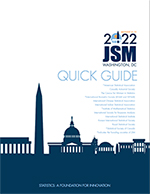Back
2022 Joint Statistical Meetings
Survey Research Methods Section
Session: Survey Mode Research
Reducing Response Bias in Reports of Trauma and PTSD: An Application of the Nonverbal Response Card in a Survey of Youth in Burkina Faso
Monday, August 8, 2022
Activity Number: 207
-
David Lindstrom
Brown University
We present results on response bias in reports of life time trauma and PTSD from an experimental trial of the nonverbal response card (NVRC) in a survey of 12-20 year olds in Burkina Faso. The NVRC is a laminated two-sided card that allows respondents to nonverbally respond to questions without the interviewer knowing the actual response. It is easy to use, highly portable and does not require literacy. The NVRC was randomly assigned to 50% of the sample and used for sensitive questions on self-harm, depression, trauma, PTSD, first sexual intercourse and unwanted sex. Respondents who used the NVRC reported 18% more life time trauma types than verbal respondents, and they were 2.8 times as likely to report 3-4 PTSD symptoms. The reports of trauma and PTSD by respondents who used the NVRC compared to the verbal method had higher internal consistency reliability and several types of PTSD correlated more strongly with reports of self-harm and depression. The question-specific error rates for the NVRC were on average higher than the rates for the verbal method, but declined across questions as respondents became more comfortable with the method, and the mean error rate for the NVRC method was well below 1%.

